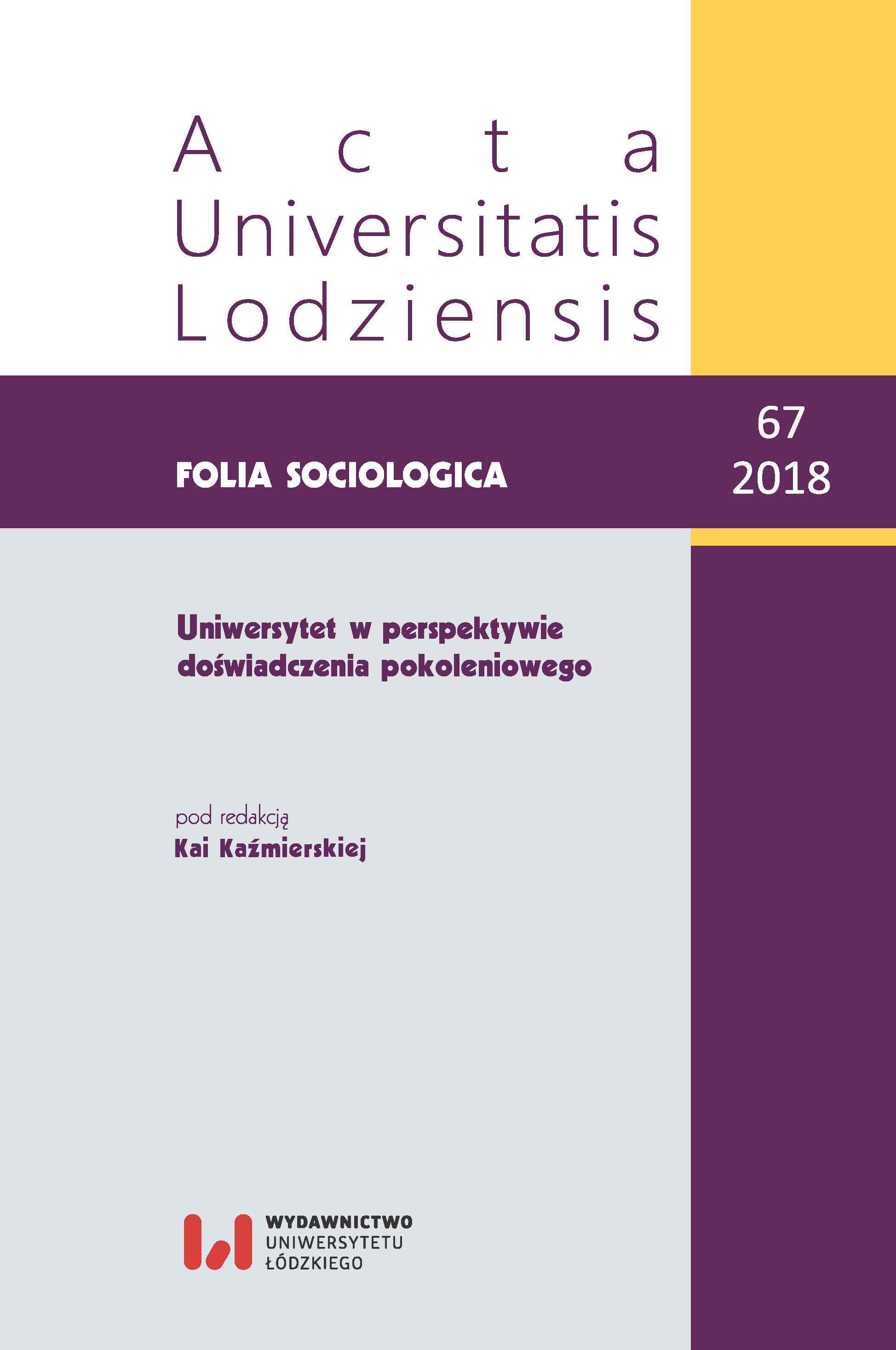Between “the infeed form” and the opening to “being in dialogue” in 1947 scientific biographies
DOI:
https://doi.org/10.18778/0208-600X.67.05Keywords:
philosophy of dialogue, narration, memories, pedagogy of dialogue, didactics of dialogueAbstract
The article presents memories of the student period and scientific career of retired university teachers in 1947. The background to the narration about the way of conducting classes and relations with students are the assumptions of the philosophy of dialogue. This theory has its impact on the practical aspect, because it results from both pedagogy and didactics based on dialogue. The aim is to determine the importance of dialogue in the academic career of retiring academic teachers. Information obtained from lecturers using narrative intelligence techniques may indicate a high level of dialogue both at work and in interpersonal relations. However, the impact of the philosophy of dialogue on the conduct of lecturers during classes and after their completion in relation to students was not always fully understood by them during their lifetime.
References
Assmann J. (2008), Pamięć kulturowa. Pismo, zapamiętywanie i polityczna tożsamość w cywilizacjach starożytnych, Wydawnictwo UW, Warszawa.
Google Scholar
Baran B. (1991), Filozofia dialogu, Wydawnictwo Znak, Kraków.
Google Scholar
Buber M. (1992), Ja i Ty. Wybór pism filozoficznych, Instytut Wydawniczy PAX, Warszawa.
Google Scholar
Friedman M.S. (1955), Martin Buber. The Life of Dialogue, The University of Chicago Press, Chicago.
Google Scholar
Gołębniak B.D., Zamorska B. (2014), Nowy profesjonalizm nauczycieli. Podejścia – praktyka – przestrzeń rozwoju, Dolnośląska Szkoła Wyższa, Wrocław.
Google Scholar
Kaźmierska K., Waniek K., Zysiak A. (2015), Opowiedzieć Uniwersytet. Łódź akademicka w biografiach wpisanych w losy Uniwersytetu Łódzkiego, Wydawnictwo Uniwersytetu Łódzkiego, Łódź.
Google Scholar
Klus-Stańska D. (2010), Dydaktyka wobec chaosu pojęć i znaczeń, Wydawnictwo Akademickie „Żak”, Warszawa.
Google Scholar
Kwieciński Z., Śliwerski B. (red.) (2007), Pedagogika. Podręcznik akademicki, t. 2, Wydawnictwo Naukowe PWN, Warszawa.
Google Scholar
Milerski B. (2008), Pedagogika dialogu: filozoficzne inspiracje i perspektywy, „Pedagogia Christiana”, nr 1/2, s. 29–42.
Google Scholar
Rzęsikowski S. (1989), O potrzebie indywidualizacji w kształceniu humanistycznym, „Przegląd Oświatowo-Wychowawczy”, nr 2, s. 18–23.
Google Scholar
Szabat M. (2015), Problematyczność relacji Ja–Ty w pismach Martina Bubera, „Przegląd Filozoficzny – Nowa Seria”, nr 4 (96), s. 221–232.
Google Scholar
Szymczak M. (red.) (1994), Słownik Języka Polskiego, t. 1 (A–K), wyd. IX, Wydawnictwo Naukowe PWN, Warszawa.
Google Scholar
Śliwerski B. (red.) (1992), Edukacja alternatywna. Dylematy teorii i praktyki, Oficyna Wydawnicza IMPULS, Kraków.
Google Scholar
Śnieżyński M. (1998), Zarys dydaktyki dialogu, wyd. II, Wydawnictwo Papieskiej Akademii Teologicznej w Krakowie, Kraków.
Google Scholar
Tarnowski J. (1993), Jak wychowywać, Wydawnictwo Akademii Teologii Katolickiej, Warszawa.
Google Scholar
Wal J. (1998), Vademecum dialogu, Wydawnictwo Naukowe Papieskiej Akademii Teologicznej, Kraków.
Google Scholar
Znaniecki F. (2001), Socjologia wychowania, t. 1, wyd. 3, Wydawnictwo Naukowe PWN, Warszawa.
Google Scholar
Żółkiewska T. (2013), Ja, Ty, Inny – Dialog?, „Studia Edukacyjne”, nr 28, s. 17–30.
Google Scholar
Downloads
Published
How to Cite
Issue
Section
License

This work is licensed under a Creative Commons Attribution-NonCommercial-NoDerivatives 4.0 International License.










